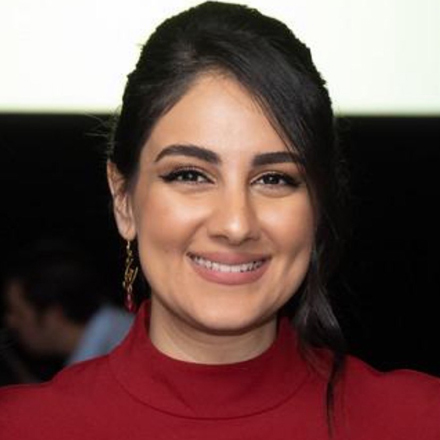Specialty's Breadth Drew Resident Leader to Family Medicine
July 29, 2019 08:39 am David Mitchell – Anna Askari, M.D., M.S.B.S., volunteered at a free clinic during her freshman year at Ohio State University in Columbus. When the clinic's medical director noticed that she was becoming a regular, that physician invited the student to shadow her.
Askari couldn't help but notice that this particular physician seemed capable of doing it all.
"She knew how to help anyone who walked through the doors of the clinic," Askari said. "She never had to tell anyone no. I asked, 'What kind of doctor are you?'"
Of course, that physician, OSU associate clinical professor Riza Tady Conroy, M.D., is a family doctor.
Askari continued volunteering at that clinic throughout college and medical school. She also volunteered at another free clinic for a year while she was pursuing her master's degree at the University of Toledo. She noticed that the primary care physicians she interacted with there, like Conroy, rarely needed a subspecialist's help.
"The attendings were usually family physicians, and they could see anyone because of their broad training and experience," she said. "It kept reaffirming that family medicine was right for me. You are able to provide compassionate, comprehensive and coordinated care in a range of practice settings as diverse as the specialty's patient population itself."
Askari shared her thoughts about the breadth of the specialty with her peers July 25-27 in Kansas City, Mo., as resident chair of the National Conference of Family Medicine Residents and Medical Students. It was the fifth time Askari has attended the event, but this time she had a behind-the-scenes perspective and a hand in planning the conference in collaboration with AAFP staff and student chair Margaret Miller, a fourth-year student at East Tennessee State University's James H. Quillen College of Medicine.
"We had hundreds of applications for sessions and workshops," Askari said. "We had the opportunity to showcase for medical students and residents what an awesome specialty we are and how diverse family physicians are."
Leadership roles are nothing new to Askari, whose undergraduate degree is in political science. She is a member of the AAFP Commission on Education and the California AFP's student-resident council. She previously served as a student delegate to the Academy's Congress of Delegates, as well as an AAFP student delegate to the AMA House of Delegates and the AMA Medical Student Section. She also had a term as student director on the Ohio AFP's Board of Directors and was an alternate student delegate from the chapter at her first AAFP National Conference and president of her medical school's family medicine interest group.
"That was a big reason I was able to stand out in residency applications," Askari said. "My leadership experience was a topic of discussion in my interviews and something that I was passionate and excited about."
As a second-year resident at Eisenhower Health Family Medicine Residency Program in Rancho Mirage, Calif., Askari still has time to figure out what family medicine career fits with her wide-ranging interests, which include outpatient medicine, direct primary care, advocacy and teaching. She also has an eye on administrative roles.
"My background shows I have an interest in that," she said, "and I think I would be good at it. From national policy formation to intracommunity practice, we as family physicians can exist at all levels of our society in roles seen and unseen. We are primed to be passionate advocates for our patients and prepared to act as leaders in a variety of community-facing roles."
Askari helped run a mobile health free clinic for migrant farmers and their families during her time at the University of Toledo. As the child of Iranian immigrants, she said she can relate to the challenges of immigrants and underserved populations.
"I understand the value of cultural proficiency in medical care," said Askari, who speaks English, Persian and Spanish. "Health care isn't one-size-fits-all. Medically underserved patients, in particular, present with often puzzling symptoms that demand astute clinical practice atop addressing social and emotional needs. Being from an immigrant family myself, I understand and bring that awareness to the table."
